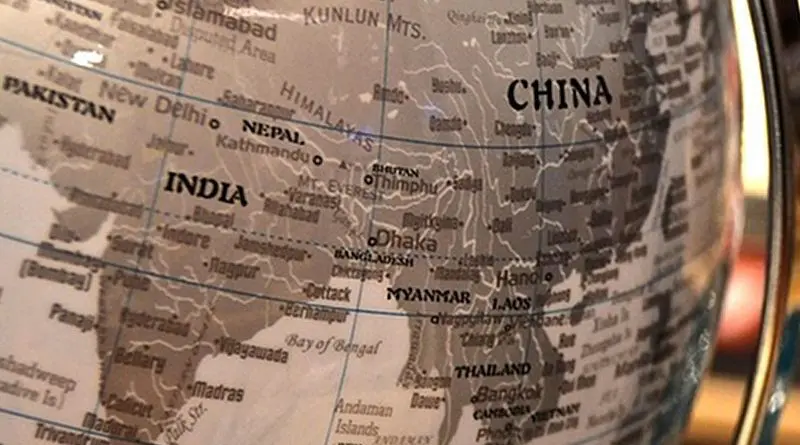Lipulekh Pass: Dispute Between India And Nepal – OpEd
By Irfan Mahar
The Lipulekh pass is a tri-junction among three states, namely India, China, and Nepal. However, it is a disputed territory between India and Nepal even India has built a road passing through this area. The newly opened trail by India connects its state of Uttarkhand’s region called Dharchula with Nepal’s part of Lipulekh pass, which is near the Line of Actual Control (LAC)- border of India with China. As for as the strategic importance of Lipulekh pass is concerned, it keeps prime vital importance for India because it provides Delhi surveillance access to have an eye on Chinese movement. According to Wikipedia source, “Lipulekh is a Himalayan pass on the border between Uttarakhand state of India and the Tibet region of China, near their tri-junction with Nepal.” Lipulekh is a region where the border of these three states converges, though Nepal claims the Kalapani territory (the southern side of the Lipulekh pass). Currently, the area of Kalapani is controlled by India while Nepal has been condemning the Indian occupation since long. In ancient times that pass was used as a transit route by traders and pilgrims between India and Tibet. Furthermore, the Lipulekh pass is near Taklakot or Purang (a Chinese trading town).
Historically, the treaty was signed between Nepal and Britain in 1816, called the Treaty of Sugauli. According to a treaty, Lipulekh and Kalapani region is part of Nepal declaring Makhali River as the boundary. Because of the hegemonic designs of Indian governments since long, PM Modi’s government also claims the territory as its part of the region. Although during the war in 1962 between India and China, New Delhi had deployed there its troops since then the first boundary claim was made by Nepal. Recently, Nepal shows its anger over the construction of the new road by Delhi in the disputed border area. In this regard, students and political parties set on protests against Indian occupation of Lipulekh territory of Nepal. Also, protesters were chanting the slogans and showing charts rejecting Indian illegal and unilateral action. Besides, the ruling Communist Party of Nepal called criminal activity of Delhi as an attack on the sovereignty of Nepal. Meanwhile, for recording the condemnation of Nepal over Indian injustice, it draws on Delhi to refrain from carrying out any activity inside its territory.
Nepal claims that India has been following the hegemonic designs, in this regard, it is eating up the territories of other neighbours that shows the hawkish and colonial mentality of Indian government which are not bearable by any state. Similarly, in November 2019, India published a new map that showed Kalapani within its borders while Kathmandu also protested this unilateral act at the hands of the government of India. Against this colonial act of India, Nepal saw widespread anger through shouting slogans and burning effigies in the capital previous week. Besides, newly inaugurated 80-Km road by Rajnath Singh (Indian Defence Minister) that expected to help pilgrims visiting Kailash-Mansarover in Tibet has generated controversies between two neighbouring nations. For showing their resentment against Indian occupation, various youth organizations staged protests in Kathmandu. They were raising their voice to record objections to the federal government for taking necessary steps to make Delhi return the territory of Nepal.
Amid the ongoing protests, Nepali police have detained at least 70 protestors in the pretext of violating lockdown announced by the government because of the staggering situation of the spread of Coronavirus. Besides, All Nepal National Free Students Union (ANNFU) members and leaders showed their anger against India and its unjust act of occupying the territory of Nepal. Meanwhile, they demanded the return of their area from India for this protestors were rising strain on the Federal government of Nepal for taking actions against Delhi. Furthermore, the whole nation is condemning Indian unilateral act, in this regard, “the hashtag #backoffindia was trending on Twitter in Nepal during the weekend”, that showed the anger of the people of Nepal against India. Delhi and Kathmandu have previously reached an understanding that the solution of the disputed territory would pursue through negotiations.
Recently after building a new road, India rejected the statement of Kathmandu and called it was entirely within its territory. In this regard, Kamal Thapa, former foreign minister of Nepal, expressed serious concerns over Indian encroachment and hegemonic designs of controlling the area of Nepal. However, the Nepal Communist Party (NCP) objected and condemned the Indian move of opening the road via Lipulekh. Similarly, the ruling NCP shared the statement that “It believes in good neighbourly relations between Nepal and India based on the principles of sovereign equality, territorial integrity, mutual respect and benefit.” The Party further explained that “All historical facts and evidence, including the Sagauli Treaty, clearly stipulate that the areas east of Kalli (Mahakali) River, including Limpiyadhura, Kalapani and Lipulekh are territories of Nepal.”
Hawkish and fascist policies and actions by PM Narendra Modi portrays his hegemonic designs such as on August 5, 2019; he changed the status of disputed Jammu and Kashmir Valley after revoking Article 370. Including this, he imposed the Citizenship Amendment Act (CAA) that resulted in Hindu-Muslim riots in India. Meanwhile, construction of the new road by India over Lipulekh pass shows its hegemonic designs that visibly challenge other countries in the region. Besides, Delhi has been violating the ceasefire on Line of Control (LoC) with Pakistan along with targeting the civilian population. In this regard, it is the responsibility of the United Nations and international community to take actions against the Indian hegemonic designs to avoid any misadventure for the peace and stability of the region.
*The writer is PhD scholar in the Department of Defense and Strategic Studies, Quaid-i-Azam University Islamabad, Pakistan.

